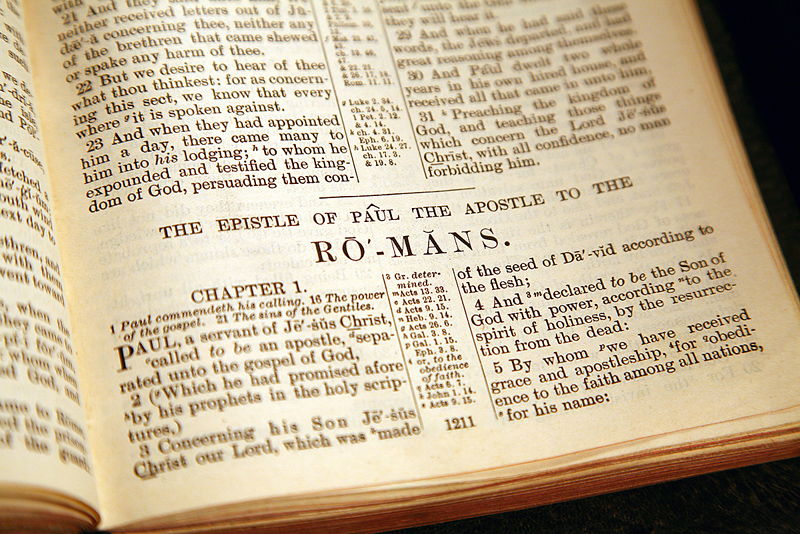
The following overview of Romans is a radical departure from what the mainstream church teaches. Read it and see if what follows doesn’t unite the truth of the Bible from beginning to end, instead of pitting one section of the Bible against the other, which is approach the church typically takes when presenting the teachings of Paul.
The Main Themes of Romans
This is perhaps the only book in the Bible that is organized systematically like a theological textbook from beginning to end with each point leading to the next. This is not how biblical books are typically arranged.
In this epistle, there are several main themes.
- Pre-eminently, Elohim is the Just Judge of the universe to whom all are accountable (both Jews and Gentiles). This concept alone is huge, since most humans don’t want to believe they’re accountable to anyone except their own egos.
- The Torah is Elohim’s standard of righteousness by which he will judge the deeds of all men (both Jews and Gentiles) fairly. If people can accept the fact that there is a supreme Being to whom they’re accountable for their actions, then it’s a short next logical step to accept that such a Being (Elohim) has laws that man must follow if he’s not to run afoul of that Being.
- Next, Paul counters a religious system that purported to explain who that Being was and what he required of sinful man. This was Judaism. The problem is that Judaism had perverted the truth of Elohim into a racially exclusive, legalistic, works-based salvational system. Paul attempts to correct this error, and restore this religion to its original truth.
- Paul then presents the gospel message of salvation by grace through faith in Yeshua the Messiah is at the center of YHVH’s process to redeem sinful man.
- Before Elohim, the Creator of the universe, there is no racial inequality between Jews and Gentiles. Elohim isn’t a racist. All are equal before him. All are sinners, and all need Yeshua.
Paul’s Epistle to the Romans keeps Yeshua and the gospel message front and center, yet at the same time Paul weaves together the good news of Yeshua with that of the righteous lifestyle of Torah-obedience. Together, these two messages form a beautiful tapestry-like picture encompassing the message of the entire Bible from Genesis to Revelation — a message of the salvation of man resulting in his being reconciled to Elohim, and his becoming elevated to the spiritual status as a child of Elohim. This process occurs through man’s relationship with Yeshua the Messiah who is both the Written Torah incarnate.
Part 1 — Introduction: The Cornerstone of the Gospel Message
At the very beginning of his epistle, Paul carefully and boldly sets in place the cornerstone for what is to follow. He declares the preeminence of the gospel message and his submission to the lordship of Yeshua the Messiah and his unflinching mission to preach this truth.
Continue reading






